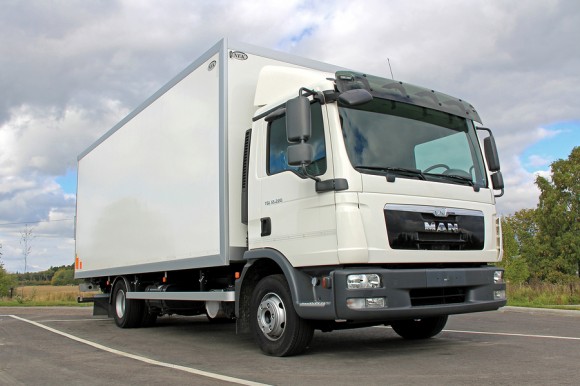The House of Representatives voted narrowly this week to block the federal government from raising the minimum liability insurance limits for truckers as recommended recently by the regulatory agency for the trucking industry.
The vote on June 10 came on an amendment (HR 4745) to a 2015 funding bill for the housing, transportation, and urban development departments sponsored by Rep. Steve Daines, R-Mont. It prohibits the Federal Motor Carrier Safety Administration (FMCSA) from acting to increase insurance requirements for truck and bus companies.
The 214-212 vote was largely along party lines with 210 Republicans and only four Democrats voting in favor.
The FMCSA concluded in a recent report to Congress that current minimum financial responsibility limits for the commercial motor vehicle industry — including the $750,000 limit for general freight carriers— are inadequate to meet the costs of some crashes, mainly because of rising medical costs.
The regulatory agency stopped short of recommending specific new limits but could have a proposal by the end of June and new limits could be published in November.
The minimum limits have not been raised in more than 30 years.
Daines said raising the limits would saddle bus and truck companies and small businesses with higher costs. He said FCMSA wants to raise the limits but does not have evidence that it is necessary.
“The small businesses that make up the majority of the truck and bus industries not only provide jobs for thousands of Americans, they play an important role in moving goods and people and supporting our economy,” Daines said. “It flies in the face of common sense to put people’s livelihoods at risk without any evidence that it would improve the safety of our roads or better meet the needs of catastrophic accident victims. I’m glad the House joined me in supporting this measure to protect small businesses and the jobs they provide.”
The FMCSA study found that catastrophic motor carrier crashes resulting in injury, death and/or damages that exceed the current limits are relatively rare — less than one percent of 3330,000 crashes analyzed. However, while catastrophic crashes are rare, the costs for the resulting severe injuries can exceed $1 million and current insurance limits do not adequately cover these costs, according to the report.
Other organizations have also studied the issue and come to different findings. They include the Pacific Institute for Research and Evaluation (PIRE), which concluded that the upper range of liability awards in large truck crashes involving death or catastrophic injury is about $10 million (in 2012 dollars) and recommended a limit per crash of at least that amount, indexed for inflation.
The Trucking Alliance concluded that the $750,000 limit is inadequate for 42 percent of crashes and backed higher limits.
The American trucking Association (ATA) contends the increase is unnecessary. It analyzed ISO data from two large truck insurers and found only 6.5 percent of trucks over 26,0000 pounds have limits under $1 million while 83 percent are at $1 million and the remaining 10.5 percent are written over $1 million. The ATA study also found that there is only a 1.40 percent chance of a claim exceeding $500,000, a 0.73 percent chance of a claim topping $1 million, and a 0.31 percent chance of a claim going over $2 million
Rep. Matt Cartwright, D-Pa., who opposed Daines’ amendment, last year filed legislation to raise the limits. His legislation (H.R. 2730) would increase the minimum level from $750,000 to $4.422 million to reflect 34 years of medical cost inflation. The trial lawyers’ association— the American Association of Justice — has endorsed his measure.
Cartwright’s bill, the Safe And Fair Environment on Highways Achieved through Underwriting Levels Act of 2013 or SAFE HAUL Act of 2013 – would also require the Secretary of Transportation to adjust such amount annually for inflation relating to medical care.
“This is a matter of public safety,” Cartwright said when introducing his measure last year.
The Senate is still weighing its own appropriations bill for housing, transportation, and urban development. Sen. Susan Collins, D-Me., has proposed an amendment that would suspend a federal safety requirement that truckers take a break after reaching the cap of 70-hours a week of driving.
Topics Trucking
Was this article valuable?
Here are more articles you may enjoy.



 Allstate CEO Wilson Takes on Affordability Issue During Earnings Call
Allstate CEO Wilson Takes on Affordability Issue During Earnings Call  Insurance Broker Stocks Sink as AI App Sparks Disruption Fears
Insurance Broker Stocks Sink as AI App Sparks Disruption Fears  AIG’s Zaffino: Outcomes From AI Use Went From ‘Aspirational’ to ‘Beyond Expectations’
AIG’s Zaffino: Outcomes From AI Use Went From ‘Aspirational’ to ‘Beyond Expectations’  How One Fla. Insurance Agent Allegedly Used Another’s License to Swipe Commissions
How One Fla. Insurance Agent Allegedly Used Another’s License to Swipe Commissions 

